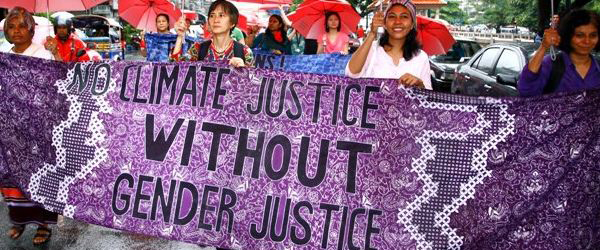

GenderCC is working to ensure that gender dimensions are fully integrated into climate policy. Gender responsive approaches must be developed and implemented in adaptation, mitigation and low-carbon development. Finance, technology sharing and capacity building, as well as outreach and participation, must also be gender responsive to meet the needs of women and men.
Equal participation of women and men, and commitment to gender justice in international agreements is an important step, yet this alone is not sufficient. International arrangements and national plans need to integrate inclusive and gender responsive climate policy.
GenderCC opposes high-risk technologies such as nuclear-power, geo-engineering and carbon capture and storage, genetic engineering and monoculture plantations. Moreover, GenderCC opposes the prevalence of market-based schemes over other policies and measures.
GenderCC played a central role in initiating the Women and Gender Constituency, which was officially recognised in 2009. The goal of this observer group is to channel the voices of women’s and gender civil society organisations participating in the UNFCCC process, reaching out to the global community on issues of climate change and the UNFCCC process.
GenderCC members represent a wide range of initiatives, networks and individuals working at international, local and national level, through advocacy, capacity building and pilot projects.